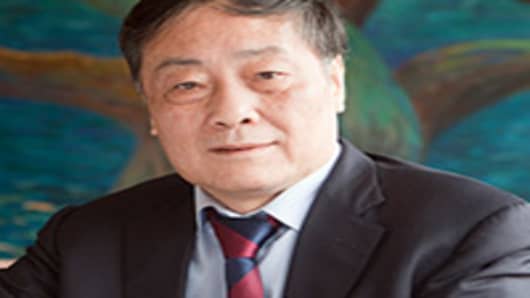Almost half of China’s ultra-rich saw their wealth shrink in the past year as the Chinese stock markets slumped, according to an annual ranking of the country’s 1000 richest individuals, with those in the solar and textile sectors the hardest hit.
The average wealth of the country’s richest fell 9 percent from the previous year to $860 million, while the number of billionaires fell to 251, from 271, the 2012 Hurun Rich List showed.
Of the wealthiest 1,000 individuals, 469 saw their wealth shrink, 291 saw their wealth grow, while 114 stayed the same. There were 150 new faces in the list this year.
Beverage magnate Zong Qinghou, who topped the list in 2010, regained the top spot with a personal fortune of $12.6 billion, thanks to his 80 percent holding of soft drinks brand Wahaha which reported net profits of over $1 billion last year.
Entertainment and real estate tycoon Wang Jianlin, who topped the rankings last year, slipped to second place with personal wealth of $10.3 billion. Wang shook up the entertainment industry earlier this year, with his $2.6 billion acquisition of U.S. cinema chain AMC Entertainment - the largest-ever international acquisition by an individual on the rich list.
But wealth in the solar and textile industries waned. Qiu Guanghe of garment maker Senmir, who placed at 58, saw his wealth plunge by 60 percent to $2.2 billion. While Zhu Gongshan, chairman of GCL-Poly - the world's largest producers of polysilicon and wafers used in solar panels, who ranked at 168, had his wealth decline by nearly 60 percent.
China’s solar sector has been suffering from a sharp decline in profitability due to slumping global sales and high domestic competition, while growth in the mainland textile sector is slowing under weak demand both domestically and externally.
Adding to these pressures has been the dismal performance of China’s stock market , which is down 8 percent this year, after declining more than 20 percent in 2011.
For the first time since 1999, income from property dropped into second place as the top source of wealth, behind manufacturing. Nick Kounis, Head of Macro Research, Group Economics, ABN AMRO, says this is a reflection of the changing structure of China’s economy, away from property towards consumption.
Slideshow: China's Wealthiest Billionaires
“If they are successful (in this structural change), we should get more retail magnates as the consumer revival takes shape,” Kounis told CNBC.
Among the fastest climbers in the list was vehicle maker and 18th Party Congress delegate Wei Jianju. Wei, who ranked at 39, saw his wealth shoot up to $2.8 billion from $1 billion driven by the listing of carmaker Great Wall Motors .
Meantime, property tycoon Wu Yajun, retained her position as China’s richest women, with personal wealth of $6 billion. The 47-year old ranked in the 8th spot, slipping down one position from last year.
- By CNBC's Ansuya Harjani



